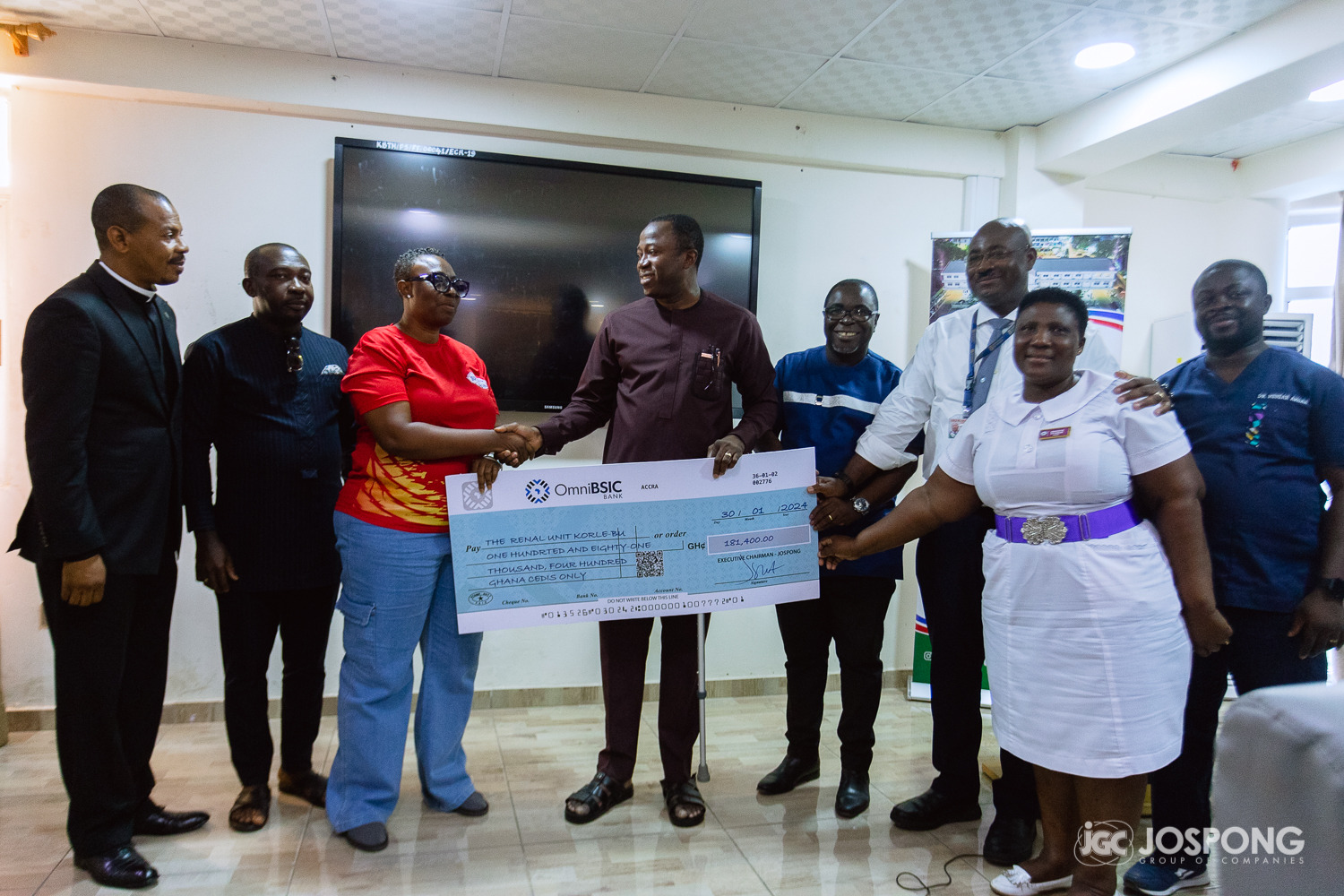
The Chief Executive Officer of Korle Bu Teaching Hospital, Dr. Opoku Ware Ampomah, is urging parliament to expedite action in approving the proposed fees for dialysis treatment.
The CEO noted that the hospital is still under recovering as it continues to charge the old fees of GHc380 instead of GHc780.
We are currently under recovering upto the tune of GHc400 per dialysis and we need to find to it before it comes back to haunt us,” Dr. Ampomah said.
The CEO made the call on Thursday February 8, 2024 when Jospong Group presented a cheque of GHc181,400 to cover the treatment of dialysis patients at the Korle Bu Renal Unit for the next three months.
The presentation was in fulfilment of the company’s promise it made during its 2023 thanksgiving service to support dialysis patients at Korle Bu Teaching Hospital, University of Ghana Medical Centre and the Bank of Ghana Hospital with an amount of GHc 500,000.
The CEO of Korle Bu observed that with the current charge, the facility is running a deficit of GHc961,000 monthly.
We actually run about 2000 dialysis sessions every month. So looking at the current charges we are running a deficit of 961,000 cedis every month,” he said.
Dr. Ampomah noted that as they wait for the approval of the new fees, the facility is also counting on the benevolence of individuals and corporate Ghana to bear some of the cost.
Making the presentation, the Chief Corporate Communication Officer-Jospong Group Madam Sophia Kudjordji, the gesture alligns with the company’s values of improving the lives of people.
We believe that it’s not just about creating jobs but also ensuring that people are healthy to contribute their quota to the development of the nation,” she emphasized.
She prayed that this gesture will not be a one of event but may continue.
It is estimated that between 13% and 17% of Ghana’s population have some form of renal function impairment. This equates to between 4 million and 5.2 million citizens. Researchers suggest that, from this segment of the population, between 15,000 and 19,500 should be on dialysis.
The data available suggests that approximately 2,000 people are currently on dialysis.
This means between 13,000 and 17,500 people are without treatment. These people will often seek alternative forms of treatment and access renal care only when the situation is acute. This has an impact on their quality of life and life expectancy.

